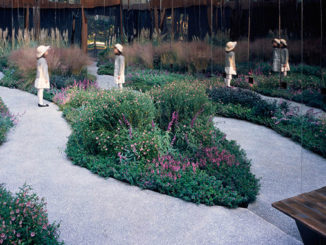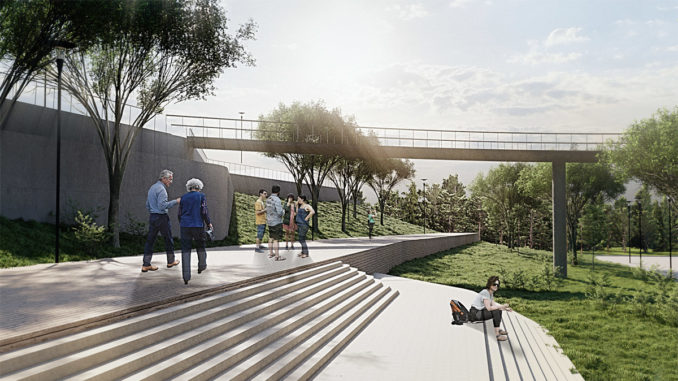
Ossining is a town located along the Hudson River in Westchester County, New York, United States. After researching the background and the condition of Ossining, the story of Ossining is, in many ways, the story of its waterfront. However, sea-level-rise and flood issues threaten this site. The current problems of the site are climate change damages, traffic noise, community isolation, low utilization of waterfront, and the lack of accessibility. Metro-North Railway runs through Ossining along Hudson River and makes the riverfront isolated from the community. The design process is to create a new version for the future Ossining to connect the riverfront back to community.
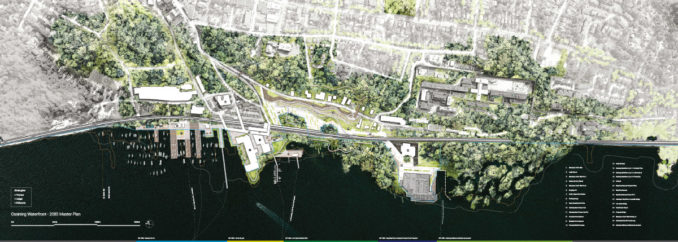
The design concept based on the existing condition is to lead people to live with water safely — first, protection. As the years pass, we have limited time to prevent building and structure from damaged by floods and surges. Giving several phases in protecting constructions is an efficient way of minimizing losses. The design concept then comes to making people live with the environment more healthily — second, adaptation. Living a resilient future for humanity should be a long-term and effective method. That means during the waterfront design, considering the relationship between animals, plants, and human beings. The design concept finally is to help people develop their community prosperously — third, relocation. After 60 years, the shoreline will move to a more inland location compared with today’s condition. Most areas of the current waterfront will disappear, and a new waterfront system will come out for us. To better prepare for this situation, it is time to evaluate which part of the city should be relocated at different periods.


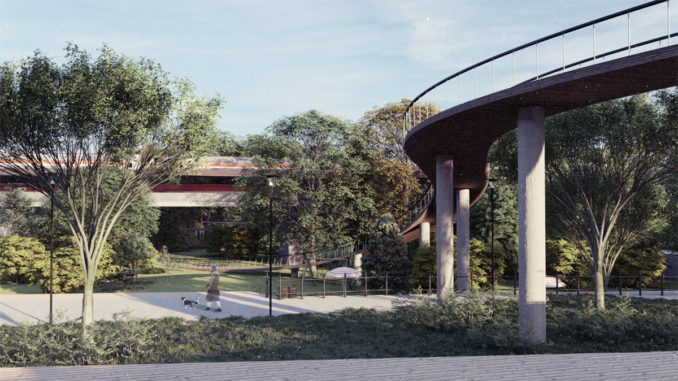
The scope is to maximize the value of mobility and green spaces in Ossining. Create a flexible environment for future Ossining. Through the concept design, the focus is on using a multi-layer waterfront to drive Ossining into a great future. Different layers will take effect in diverse micro-climate and combine with various programs. The design recalls the history of the town, at the same time, puts Ossining in a new position on the map symbolically as the guide for the future waterfront.
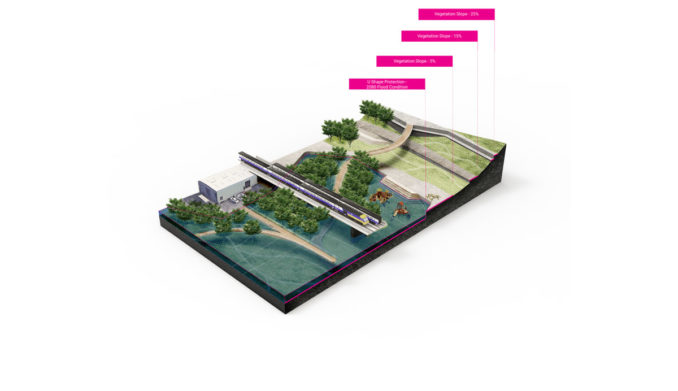
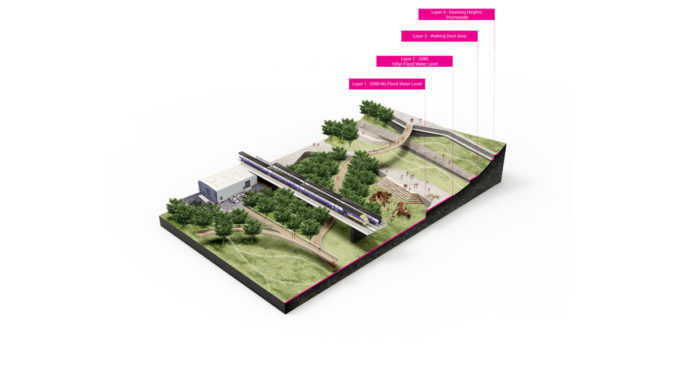



Student: Lingyi Xu
University: Cornell University


